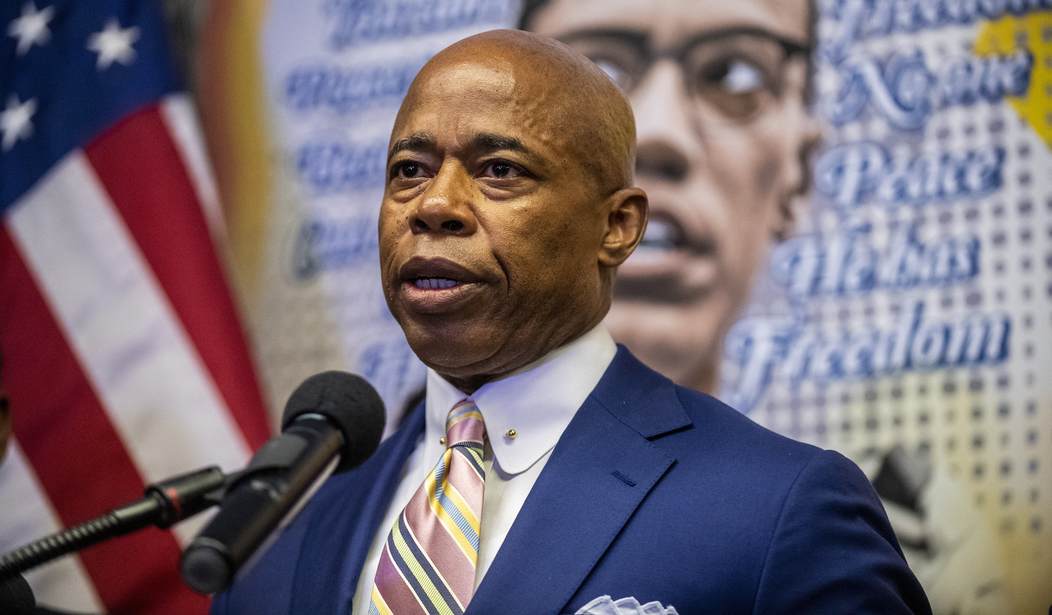If you want to reduce gun violence, New York City Mayor Eric Adams thinks, you need to go after guns. His plan relies heavily on disrupting gun trafficking, seizing guns and arresting people for illegal gun possession.
This strategy is unlikely to work. Worse, the focus on gun possession arrests, if it fails to distinguish between people who pose a real threat to public safety and people who carry guns for self-protection, will compound the injustice of systematically denying city dwellers their Second Amendment rights.
"It is estimated that as many as 2 million illegal guns were in circulation in New York City in 1993," the Justice Department reports. Last year, the New York Police Department seized about 6,000 guns; even at that unusually high rate, three decades of seizures would not have made much of a difference.
Given that reality, attempts to disrupt the supply of guns are not a very promising approach either. For crime guns in New York, the average time between initial sale and confiscation is nearly 12 years.
Philadelphia, like New York, has recently seen sharp increases in homicides. But law enforcement officials in that city are rightly skeptical that gun seizures or supply-side measures are an effective way to tackle the problem.
Between 1999 and 2020, according to a January report from a committee that includes local police officials and Philadelphia District Attorney Larry Krasner, nearly 13 million guns were legally sold in Pennsylvania, an average of more than 1,600 a day. Meanwhile, Pennsylvania law enforcement agencies seized an average of 22 guns per day.
Recommended
"With so many guns available," Krasner says in the report, "a law enforcement strategy prioritizing seizing guns locally does little to reduce the supply of guns." And if that strategy "entails increasing numbers of car and pedestrian stops," he warns, it "has the potential to be counterproductive by alienating the very communities that it is designed to help."
As in New York, the Philadelphia report notes, "most guns used and/or recovered are those purchased a long time ago, indicating that attempts to limit the future supply of guns now will not impact the current gun violence crisis." The report's analysis of 100 shootings confirms other research finding that criminals typically obtain guns through illegal transfers or theft, sources that would not be affected by new restrictions on sales, such as expanded background checks.
Data from Baltimore, another city where homicides have risen in recent years, likewise casts doubt on the effectiveness of Adams' strategy. Based on 31 years of homicide and gun-seizure data, a Battleground Baltimore report published last week concludes that "seizing 'illegal' guns does not reduce violent crime, although gun seizures and gun possession arrests remain metrics frequently cited by police."
Arresting people for illegal gun possession is not just ineffective; it is frequently unjust. Krasner says gun possession arrests "must be targeted to distinguish between drivers of gun violence who possess firearms illegally and otherwise law-abiding people who are not involved in gun violence."
When "people do not feel protected by the police," Krasner notes, they may "view the risk of being caught by police with an illegal gun as outweighed by the risk of being caught on the street without one." Before he was elected, Manhattan District Attorney Alvin Bragg expressed a similar concern.
"We need to recognize that not every person charged with possessing an illegal gun in New York City is a driver of violence," Bragg said on his campaign website. "My dad had an illegal gun not because he liked guns or because he was 'dangerous'; he had a gun because of crime in the neighborhood."
Bragg has since retreated from that stance, echoing Adams' determination to vigorously prosecute people who carry guns without the government's permission. But law enforcement agencies cannot redeem their failure to protect public safety by locking up people who respond to that failure by exercising the constitutional right to armed self-defense.

























Join the conversation as a VIP Member